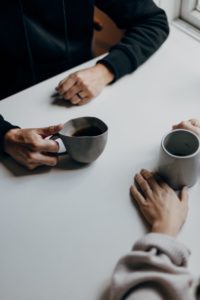 Sometimes it seems to me that the dumbest Christian knows more than the most famous secular neuroscientist. They’re thought to be a pretty bright bunch, because they deal with the most complex organ in the body – the brain. This week, reading a book by one of them, only confirms my view. In it, he writes that when the activity of our brain stops, so do we. And when that activity changes character, due to injury or drugs, so do you. If you damage a small piece of the brain, who you are is likely to change radically.
Sometimes it seems to me that the dumbest Christian knows more than the most famous secular neuroscientist. They’re thought to be a pretty bright bunch, because they deal with the most complex organ in the body – the brain. This week, reading a book by one of them, only confirms my view. In it, he writes that when the activity of our brain stops, so do we. And when that activity changes character, due to injury or drugs, so do you. If you damage a small piece of the brain, who you are is likely to change radically.
So how do you explain how someone with dementia, whose brain scans show the damaged the disease has caused, can suddenly return to himself, reappear from behind the fog, and regain lucidity with all the faculties he or she had apparently lost? It often happens towards the end of the person’s life, but can at other times, also. I describe cases in my books. In my first book, Could it be Dementia: losing your mind doesn’t mean losing your soul’ I wrote:
“I am fearfully and wonderfully made,’ wrote the Psalmist, ‘your works are wonderful, and I know it full well.’ Musing on how God knew everything about him, even understanding his thoughts and anticipating his words, he wrote, ‘Such knowledge is too wonderful for me, too lofty for me to attain’.
“If our personalities were the result, in part or in whole, of the brain we genetically inherit then, when the brain died, so would we. It would be ‘lights out’ for us, the end. But if, as Jesus Christ promised, there is life after physical death and, by the sound of it, a better life than most people currently enjoy, then the assumption is that our brains, like the rest of our bodies, are the controls that we use that help us express ourselves and interact with the physical world. As we are unable to see heaven with our physical eyes, so we are unable to see the real ‘us’, despite science’s most advanced tools. The Bible tells us that, ‘the body that is sown is perishable, it is raised imperishable; it is sown in dishonour, it is raised in glory; it is sown in weakness, it is raised in power; it is sown a natural body, it is raised a spiritual body.’ 1 Corinthians 15:42. This is a promise God has made. It means that the pastor I met at the conference will once again worship with his Grandma. Jack and his wife will hold a conversation again. They will have a new body, perfectly suited to heaven. We can understand the part ‘Sown in weakness … sown a natural body’, because we feel it and we see it. We cannot describe our new, spiritual bodies (though I have heard a few preachers give their ideas), but we have a sense of it in our spirits, like the smell of coffee before it is poured. The Spirit of God within us sketches it on our souls, because ‘He has set his seal of ownership on us, and put his Spirit in our hearts as a deposit, guaranteeing what is to come.’ How kind of God, to give us a foretaste of Glory!”
We are more than the sum of the parts. Our very beings … the way we work, speak of the invisible reality (Romans 1:20). It’s so encouraging to think about this!
















I love this article and the truth within it ! I have seen many examples of things that defy neuroscience!